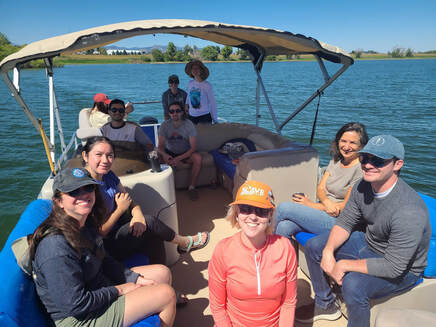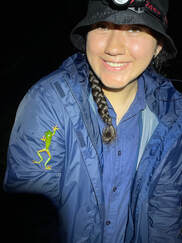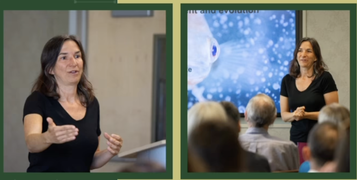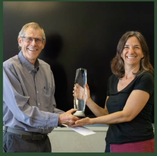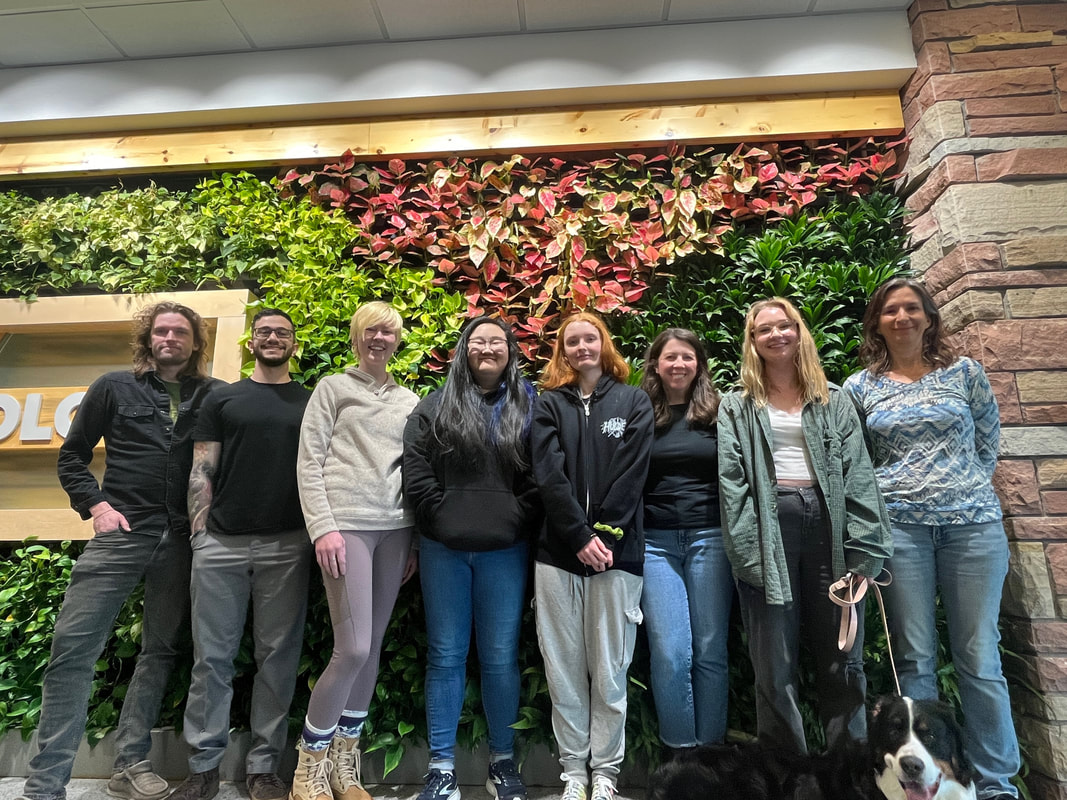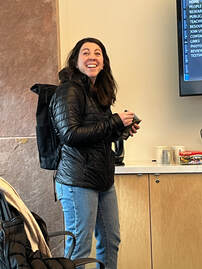We are very excited to share that Kira has decided to join the lab after her rotation! Stay tuned for more news as she develops her thesis topic.
|
The lab headed out to the lake for a boat day to celebrate Mile’s successful defense and had a blast!
Kira Vasquez has started her rotation the lab through the Cellular and Molecular Biology program. We're very excited to have her visit us!
We’re so excited for Miles, who defended and walked out of here with his PhD! We can’t wait to see what great science he’ll do as Dr. Whedbee!
Maddie Gaasch and Eliza Fuhs have joined the lab as our summer 2023 REU students. Welcome to the team!
Julianna Mendez will be joining us in the fall of 2023. Julianna is coming from Gettysburg College in Pennsylvania, where she worked on red eyed tree frog acoustic and vibrational signaling. We are very fortunate and excited to have her join the lab!
Fearless leader Dr. Kim Hoke gave a special lecture in light of receiving the well-deserved highest honor in the college in recognition of her achievements and commitments in research, service, mentoring, and teaching. More in this source article:
https://natsci.source.colostate.edu/professor-laureate-ceremony-spring2023/ A huge congratulations to Dr. Kim Hoke for being named Professor Laureate by the College of Natural Sciences! Professor Laureate is the college’s highest academic award; well deserved!
|
Our primary goal is to understand the processes that shape evolutionary trajectories. We focus on the mechanisms of convergent evolution of behavioral and morphological traits. We link molecular, neural, and developmental mechanisms to their consequences for organismal phenotypes, and we investigate the neural and hormonal mechanisms of context- or experience-dependent changes in behavior.
|
